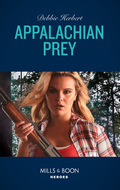Książki nie można pobrać jako pliku, ale można ją czytać w naszej aplikacji lub online na stronie.
Czytaj książkę: «Killer Secrets»
She has a murderous past.
Will it destroy her future, too?
Mila Ramirez has never stopped trying to outrun the sins of her serial killer parents. But her hard-fought new life starts to unravel when she finds an employee dead. Trusting strong, sexy police chief Sam Douglas forces her out of isolation, even as it brings a murderer closer. Mila narrowly escaped evil before. This time it wants to destroy everything she loves—including Sam.
Oklahoma, dogs, beaches, books, family and friends: these are a few of MARILYN PAPPANO’s favorite things. She lives in imaginary worlds where she reigns supreme (at least, she does when the characters cooperate) and no matter how wrong things go, she can always set them right. It’s her husband’s job to keep her grounded in the real world, which makes him her very favorite thing.
Also by Marilyn Pappano
Killer Secrets
Detective Defender
Nights with a Thief
Bayou Hero
Undercover in Copper Lake
Copper Lake Encounter
Copper Lake Confidential
Christmas Confidential
“Holiday Protector”
In the Enemy’s Arms
Copper Lake Secrets
Covert Christmas
“Open Season”
Scandal in Copper Lake
Passion to Die For
Criminal Deception
Protector’s Temptation
Discover more at millsandboon.co.uk
Killer Secrets
Marilyn Pappano

ISBN: 978-1-474-07872-6
KILLER SECRETS
© 2018 Marilyn Pappano
Published in Great Britain 2018
by Mills & Boon, an imprint of HarperCollins Publishers 1 London Bridge Street, London, SE1 9GF
All rights reserved including the right of reproduction in whole or in part in any form. This edition is published by arrangement with Harlequin Books S.A.
This is a work of fiction. Names, characters, places, locations and incidents are purely fictional and bear no relationship to any real life individuals, living or dead, or to any actual places, business establishments, locations, events or incidents. Any resemblance is entirely coincidental.
By payment of the required fees, you are granted the non-exclusive, non-transferable right and licence to download and install this e-book on your personal computer, tablet computer, smart phone or other electronic reading device only (each a “Licensed Device”) and to access, display and read the text of this e-book on-screen on your Licensed Device. Except to the extent any of these acts shall be permitted pursuant to any mandatory provision of applicable law but no further, no part of this e-book or its text or images may be reproduced, transmitted, distributed, translated, converted or adapted for use on another file format, communicated to the public, downloaded, decompiled, reverse engineered, or stored in or introduced into any information storage and retrieval system, in any form or by any means, whether electronic or mechanical, now known or hereinafter invented, without the express written permission of publisher.
® and ™ are trademarks owned and used by the trademark owner and/or its licensee. Trademarks marked with ® are registered with the United Kingdom Patent Office and/or the Office for Harmonisation in the Internal Market and in other countries.
Version: 2020-03-02
MILLS & BOON
Before you start reading, why not sign up?
Thank you for downloading this Mills & Boon book. If you want to hear about exclusive discounts, special offers and competitions, sign up to our email newsletter today!
Or simply visit
Mills & Boon emails are completely free to receive and you can unsubscribe at any time via the link in any email we send you.
To my husband, Robert:
What does it say that when I think of crazy people and villains, I think of you?
And when I think of cops and good guys, I also think of you.
And when I think of heroes.
And when I think of love. Forty years...
And we’ve lived happily-ever-after.
Contents
Cover
Back Cover Text
About the Author
Booklist
Title Page
Copyright
Dedication
Chapter 1
Chapter 2
Chapter 3
Chapter 4
Chapter 5
Chapter 6
Chapter 7
Chapter 8
Chapter 9
Chapter 10
Epilogue
Extract
Extract
Chapter 1
October 15 was a Thursday, three days after my eleventh birthday. My father came home from work, smelling of cigarette smoke and booze, wearing that big goofy smile that was normally reserved for strangers. He kicked off his shoes, threw his Yankees cap at the hook next to the door and missed, then announced that he was taking me to the mall on Saturday to celebrate.
As with all of his grand pronouncements, he waited for me to show excitement at the prospect, maybe even a little joy, but my face remained in its usual dull set. The idea didn’t excite me. It made the hairs on my arms stand on end, churned in my stomach and sent sour little bubbles that burned into my throat. Malls were his favorite hunting grounds: all those shops, all those people, all those escapes. I would gladly give up birthdays and celebrations for the rest of my life if only I never had to set foot in a mall again.
He waited, and I tried to summon a smile, a hint of appreciation, any bit of emotion that would satisfy him, but nothing would come. I just felt sick. I couldn’t do it. Not again.
Of course he knew my thoughts. He always did. His jovial mood vanished in a heartbeat, his smile turning to a snarl. His right hand came up automatically, poised to strike my cheek the way he’d done a hundred times before, but with a muscle twitching in his jaw, another at the corner of his eye, he stilled the motion.
He wasn’t sparing me. I knew it, and the evil gleam in his eyes showed that he knew I knew. The punishment would come, just not before we went to the mall. He needed me to attract the kind of victim that excited him, and that attraction was always based on sympathy. Poor little waif, separated from her father, big brown eyes, trembling lower lip, fear in her voice—just the thing to kick maternal instincts into high gear. A bruised cheek, a split lip, a black eye—they earned sympathy, too, but not the kind he wanted. Needed.
Though I’d spent my entire life shrinking away from him, tonight I didn’t. Not this time. I stood tall and sullen and staring, but inside the shivers had started, and they wouldn’t stop for a long, long time. Saturday was only two days away. Some woman whose only fault in life was catching my father’s attention was going to suffer horribly and then she was going to die.
And then I would suffer, too, but I wouldn’t die. I didn’t know if that made me the lucky one.
Or the unlucky one.
—Excerpt, The Unlucky Ones by Jane Gama
Summer was a hell of a time to be in the lawn care business in Oklahoma.
With the air temperature hovering around ninety-five degrees and the humidity somewhere in the same range, Mila Ramirez was eager to escape the oppressive heat as soon as the battered pickup came to a stop. Opening the door required reaching through the window that wouldn’t roll up and grasping the outside handle, sizzling hot in the morning sun. She gave the door a shove with her foot, making it creak, then slid to the ground, her boots making solid clunks on the pavement. If the driveway had been blacktop instead, she was pretty sure they would have sunk into it.
You’re the one who wanted an outside job, remember? You should have become a lake ranger instead.
Alejandro and Mario tumbled out on her heels, bearing the smells of sweat, engine oil and unwashed bodies. If she didn’t smell just as bad, the odors might have overwhelmed her. As it was, she ignored their stink and her own and headed to the trailer.
Cheap plastic crinkled as Ruben handed out bottles of water from the cooler. He was a sour, taciturn man who worked hard, worked his crew hard and had little interest in chitchat. He had even less interest in Mila. None of the crews at Happy Grass Lawn Service did.
Which suited her fine. Hadn’t avoiding attention been one of her goals in life?
She slid the water bottle inside the insulated holder she wore bandolier-style, then grabbed the favorite of her trimmers and a garden trug filled with tools and headed around the corner of the house. Ruben didn’t bother to give them assignments; they’d worked together long enough to know their jobs. This customer was a regular, every Wednesday right after lunch.
The house was somewhere in the high six figures, but she paid it no mind. It was the yard she liked: spacious, more than five acres, with a sparkling blue pool and elaborate flower garden out back. She’d planted the garden herself back in the spring, coaxed the plants to grow from seedlings to strong lush specimens, full of color and fragrance and promise. The irrigation system took care of watering the rest of the week, but on Wednesdays, the plot got her personal attention as she watered and weeded and deadheaded, caring for it as if it were her own.
The silence of the neighborhood was broken by the sound of Ruben’s mower starting. He did the front yard, walking diagonally behind a push mower, per the owner’s preference. Alejandro used the stand-on mower to take care of both sides of the house, and he and Mario shared the jobs of raking, blowing, Weedwacking and edging.
Mila appreciated the relative silence of the backyard. After typing in the code to the gate, she shifted the trimmer so it didn’t damage the flowers on either side of the walkway and wished for a moment that the sun would disappear behind the clouds. Even the ball cap pulled low over her eyes couldn’t lessen the glare reflecting off the smooth surface of the pool.
Too bad she couldn’t take a dip in it. Even tepid water would feel good right now. At least it would wash away a few layers of grime and perspiration. But that would be a fireable offense. She wasn’t so skilled and personable that she could throw away a job, especially one that allowed her to work pretty much on her own. Her crew probably didn’t say twenty-five words a day to her, and that was the way she liked it.
Though, at the thought, something twinged inside her. Was that really the way she liked it? Or was it just the only way she knew?
Resolutely, she pushed the question away. A long time ago, she’d adopted her grandmother Jessica’s philosophy: it is what it is. You took what life gave you, and you made the best of it. That was exactly what they’d been doing for the last fifteen years.
Reaching the back corner of the house, she stopped and let her gaze slide slowly across the vista while contentment chased away the moment of discomfort. The house sat at the top of a hill, with a steep slope starting at the distant edge of the garden. Off to the east rose the slim spires of downtown Tulsa. Just beyond the lower hilltops to the northeast, the town of Cedar Creek sat, compact, a small space crammed with rooftops, power lines and the grid of neatly laid-out city blocks. The valley just past the garden was green with oaks, red cedars and hickories and dotted with gnarled deadfall that indicated too many years since the last cleansing wildfire.
It was a peaceful, quiet place. Until she noticed she wasn’t alone. The quiet remained, but the peace disappeared in an instant.
One of the half dozen lounges around the pool was occupied. From this angle, all she could see was tousled dark hair above the chair back. It wasn’t unusual to find some clients at home when they arrived, but she’d never seen this client before. His name was Carlyle. She’d taken care of his yard for three years, had planned and planted his garden, but she’d never met him or spoken to him. Like most of their well-heeled customers, he didn’t communicate directly with the help if he could avoid it.
Mila hesitated, then cleared her throat. He didn’t move. Rolling her eyes at her reluctance to leave her safe, unnoticed spot, she forced herself to put the equipment down, then crossed the stepping-stones to the patio. “Excuse me.”
No response.
“Lawn service, Mr. Carlyle.”
Still nothing. She rubbed her grubby palms on the legs of her jeans. The dampness of the denim reminded her that she’d started work at six this morning and hadn’t been dry since. She wasn’t in any condition to approach one of their wealthiest clients.
The deep breath she took was filled with the sweet fragrance of the flowers and a whiff of chlorine from the pool, both expected, plus something else. A tangy, bitter, familiar something that rose like a phantom from long-ago nightmares, that made her muscles go taut and a knot harden in her gut like stone.
The air was utterly still, without even a hint of a breeze to ruffle the dark hair. The oversize chair with its teak frame and plush cushions hid the rest of the person from view, but it couldn’t hide the puddle that had collected underneath the chaise. It was fresh and thick and so out of place on the imported rainbow stone, its vivid red hue an obscene contrast with the peaches, tans and purples.
As she stared, something plopped onto the surface of the blood. Her brain reacted to the ripples, making her aware of the humming of insects. Bees in the garden, she told herself, even as a fat fly lifted off the blood, circled a time or two, then landed again.
Her mind went blank. Her shoulders rounded, her chin drooping. A long time ago, she had believed that if she shrank into herself, if she physically made herself small enough, no one would see her, no one would notice her, but it had rarely actually worked. They had always seen her—her father, at least. Her mother, it seemed, had never noticed her.
The others had seen her. The victims. Even when they were dead, they’d still seen her. Admonished her. Pleaded with her. Blamed her.
She forced a shaky breath. She wasn’t a kid anymore, and they were all dead. There was nothing they could do to her now, nothing here she couldn’t handle. Probably nothing she hadn’t seen before.
Alejandro’s mower roared louder as he drove toward the fence on her side of the house, then after a rumble that vibrated the ground beneath her feet, he made a tight turn and headed back. He wouldn’t hear her if she called. No one ever had. Not even when she screamed.
Nausea rising inside her, Mila forced herself to take a step, another, another, angling off to the left side, the side closest to the gate in case she needed to make a sudden exit. Each step brought the person in the chair into better view, until she could see his feet, his bare legs, the khaki of his shorts. A man, yes. Maybe Mr. Carlyle, maybe not.
Definitely a dead man. The gaping wound that stretched across his throat from one ear to the other left no doubt about that. Neither did the terror in his open eyes. Terror that she’d seen before, on the victims, on her grandmother, on herself.
Oh, God.
Dear God, not again.
* * *
Ninety percent of the city of Cedar Creek fell within the rectangular boundaries plotted by its founders over 125 years ago, making it a neat little box that was easy to navigate. Sam Douglas had been born and raised in those twenty-five square miles, gone off for a stint in the army, then come back to work for the Cedar Creek Police Department. He knew every block like the back of his hand, except for the neighborhood he was turning into.
It was a forty-acre section of high-dollar houses on big lots that overlooked the town while security guards and tall iron fences kept out the common folk. The area had fallen under county jurisdiction until five years ago, when the city council got wind that it was being acquired by some luxury developer. The council had moved fast, extending town limits to incorporate the former ranch and getting a nice increase in tax dollars from it. Even though incorporation meant police and fire protection, this was the first call Sam could remember requesting police presence within the hallowed compound.
“Hawk’s Aerie.” Cullen Simpson, the department’s newest hire, snorted. “Who comes up with these names?”
“People who make more money than you and me, bud.”
Simpson snorted again. “I’d rather have a nice little house in Texas than a big fancy one looking down on Cedar Creek. They could’ve at least built in Tulsa, where there’s more to do.”
“Easier to be a big fish in a little pond.”
“Huh?”
“Never mind.” Sam showed his credentials to the guard at the gate, then drove slowly down the street. Simpson was from a wide spot in the road in north Texas, so he should have understood the fish comment. Maybe he was just too damn young. The more time Sam spent on this job, the older he felt. He was pretty sure he was going to feel ancient tonight.
There was only one street in the development, splitting five hundred feet in to form a loop with four houses in the middle and six on the outside. The middle houses were just as large as the outer ones, but the lots were smaller, only two or three acres. Even on the lofty premises of Hawk’s Aerie, there was best, and then there was best of the best.
“That must be it there.” Simpson pointed ahead, where two police cars, a fire engine and an ambulance were parked. There was also a decrepit pickup truck towing a trailer and bearing a sign saying Happy Grass Lawn Service on its side.
The only happy grass Sam had ever come across was the weed he’d smoked back in his younger days. Who did come up with these names?
He pulled his pickup to the curb, shut off the engine and climbed out as he looked at the lawn service crew idling by their truck: three men gathered together, one woman a dozen feet away. Two of the men were smoking, but none of them were talking. The woman leaned against the faded fender, her feet spread wide, her spine rounded so she stared at the ground. Though there were plenty of people around, she looked alone, with no one to stand with, no one to lean on.
His gut said she was the one who’d found the body, stirring his sympathies. He’d spent two years in combat in Iraq, where he’d seen things no one should ever see, but he still got a jolt at crime scenes. How could someone who probably had zero experience with violence handle getting a view up close and personal?
“Chief.” Lois Gideon, the first female officer in Cedar Creek, removed her cap, dragged her fingers through her wet gray hair, then set it back. She wasn’t a detective and had no desire to be, but she still pretty much controlled the crime scenes. She was good at it.
“The victim is Evan Carlyle, owner of the house. He’s forty-eight, works for a pipeline company in Tulsa, lives here with his wife and two kids. They’re out of the country on vacation. Little Bear’s out back making a list with locating them at the top.” She quirked one eyebrow; Ben Little Bear was a compulsive list maker. People teased him about it, but while things might slip his mind, they never slipped his list.
“The body’s out back by the pool,” Lois continued. “No sign of a break-in, alarms on the house and the fence, security guard says no one’s been in besides those folks—” she gestured toward the lawn service “—and a plumber making a call at a house over there.”
“Who found Mr. Carlyle?”
“The woman.” Lois checked her notes. “Milagro Ramirez. The 911 call came from the older guy, Ruben Carrasco.”
Sam’s gaze went to Milagro again. She remained in the same position, as if the clunky boots she wore were the most intriguing thing in her world at the moment...or, at least, the safest thing. How long would it be before she could close her eyes without picturing Evan Carlyle’s lifeless body? How many nightmares would she have, and would there be someone to help her through them?
Not technically his worry, but the Cedar Creek Police Department had a reputation for going above and beyond. To protect and serve, their vehicles said, and he believed strongly in doing both.
“Let’s see the body.”
Lois crossed the fresh-cut grass to the driveway, then took a stone path that led around the side of the house. The gate there stood open, offering a glimpse of a flower garden that would make Sam’s father proud. Given that Samuel Douglas had spent the last thirty years running his own nursery, that was saying something. Of course, a man who could afford a ten-thousand-square-foot house for his family of four could also afford to pay someone to create garden magic for him.
Two more of his officers waited in the backyard, along with paramedics, a couple of firemen, the department’s senior evidence technician and, at a patio table as far from the scene as he could get, Ben, on his computer. He was the only one doing anything. The victim was beyond help, and the tech knew Sam would want to look over the scene before she started collecting evidence. Though none of them was within ten feet of the body, they all retreated a few steps when he approached.
Sam had seen enough death for twenty people. Sometimes it had been sweet, welcomed, a last breath before peacefully slipping away. That was the way his granddaddy had died, with Sam holding one hand and his cousin Mike holding the other. Sometimes it came as a surprise, just an instant to think It isn’t supposed to happen this way before it was over. Some people didn’t even get that much—just poof! Gone, like a light snuffed out.
Evan Carlyle had had more than enough time to understand that he was going to die. He’d seen it. Felt it. Feared it.
Sam looked a long time, his focus tight, not hearing anything but the buzz of insects, the distant wail of a siren and a muffled dispatch issuing from a radio. Nausea rose inside him, the way it always did, but he forced it down again, the way he always did, and walked away before taking a deep breath. As soon as he cleared that ten-foot mark, the evidence tech moved forward to continue with her tasks.
Sam detoured to the table where his detective worked, sunlight glaring on him. “You need any help, Ben?”
“Not yet. Unless you want to interview the yard service people.”
Ben was damn good in the interview situation when it was suspects across the table from him. He was tough, driven, could intimidate the worst of the bad guys and often did without so much as rising from his chair. But when it came to witnesses, the victims, the friends and families, he had trouble finding his stride. “Lois and I will take care of it.”
Without looking up from his computer—where the screen showed another list in the making—Ben grunted, and Sam headed back to the gate.
“What now, Chief?”
Simpson fell in step with him at the corner of the house. The newbie had stayed hell and gone from the body. He’d confessed on the way out that he’d never seen a dead person before, had never even been to a funeral, and he wasn’t looking forward to the experience. “But I’ll get through it,” he’d hastened to assure Sam. “I’ll get used to it.”
“I hope not,” Sam had replied. No one but medical examiners and embalmers should ever get used to the sights of violent death, and even they couldn’t allow themselves to totally get used to it. They had to retain some of their horror, or what purpose was there in living?
“Sit in with Lois while she interviews the men on the yard crew. I’ll talk to the woman.” As he said it, he looked around. The Hawk’s Aerie bulldozers hadn’t left a single tree on the property big enough to provide shade to anything more than a cricket. The stoop fronting Carlyle’s house was small, and its most notable feature was the sun that shone fully on the three stone steps. “I’m going to the truck. At least we can get some air there. Send her down to me—and make sure she comes.”
There weren’t so many people on scene that Ms. Ramirez could easily slip off and evade him, but he wouldn’t take any chances. If he were a sensitive kind of guy, he could find it downright insulting how many people didn’t want to talk to him when a crime was involved—even self-proclaimed honest citizens.
Striding back to the truck, he started the engine, turned the AC on high and watched as Simpson pointed out the pickup to Milagro. With a tiny nod, she pushed away from the pickup and started Sam’s way, her head still down, her manner submissive. She was average height, slender, and the hair that hung messily beneath her ball cap was black. Her choice of clothes looked unbearable for working in the heat: jeans, long-sleeved shirt with a T-shirt underneath, work boots that reached above her ankles, a bandanna wrapped around her throat to cover the back of her neck and the ball cap pulled low. The men on the crew were dressed the same. Protection from the sun.
The passenger door opened and, after a hesitation so brief he might have imagined it, she stepped up into the truck. Accompanying her was the overripe scent of hard work. Sam had smelled worse. Hell, he smelled worse after every steamy summer run.
As soon as she closed the door, Sam directed most of the air vents to the passenger side. Milagro looked like a rag wrung out then dropped to the ground, with grass clippings clinging to her clothes and what little exposed skin they’d found and coated with layers of dirt. The strongest scent coming from her was that fresh, sharp, not-always pleasant smell of whacked weeds. Smelled like Johnson grass, the invasive weed he’d spent three miserable summers banishing from the farm.
“I’m Chief Douglas.” He removed his hat and laid it crown down on the dashboard. “And you are...”
“Milagro Ramirez.”
The name alone made him expect to hear an accent and sounds meticulously pronounced. He didn’t hear either. She said it exactly the way he would have, her accent indistinguishable, as if she might have been from anywhere but south of the border.
“I understand you found Mr. Carlyle’s body.”
“Yes.” She sat rigid, her spine not touching the seat, and stared at some point in front of the vehicle. The air rushing from the vents blew fine tendrils of her hair and was slowly chasing away the pink that spread across her cheeks.
Was she here illegally? Rumor had it that the guy who owned Happy Grass Lawn Service was too cheap to pay decent wages so he relied on immigrants who had no status and no one to complain to. Or she could have all her papers in order but be in trouble for something totally unrelated. She could be a perfectly law-abiding born-in-the-USA citizen who’d never had contact with the police, or she could distrust cops just for being cops. There was no shortage of that sentiment these days.
And yet he and all the others who did it stuck it out. They were the protectors, the investigators, the defenders, the justice seekers and, sometimes, given the nature of criminals and the extent of the things bad people could do to other people, they were just plain insane.
Though Sam had started the day feeling all law and order, truth, justice and the American way, about now he was thinking he just might be insane.
* * *
It didn’t take long for Mila’s body temperature to drop from borderline heatstroke to shivering like winter in her wet clothing. Her arms had goose bumps and her hands were shaking when she reached out to close the vents until only a thin line of air came out.
For a while she’d been lost in blessed numbness. She’d walked calmly out of the backyard, stopped Ruben and asked him to go with her. He’d taken one look at the body, shooed her away and called 911. Next he’d pushed her down onto the driveway in the miserable bit of shade the pickup provided, thrust a bottle of water into her hand and stopped the other two working. She’d had a few lovely minutes when she saw nothing, thought nothing, remembered nothing, when she was just a drifting soul in a distant universe where no person or thing could follow her.
Then she’d heard the sirens, reminding her of other sirens, other lives, other deaths. The noise and bustle of the first responders had drawn her back into this universe, reminding her to pull herself together. It hadn’t been easy gathering all the parts of herself back into a coherent being. Fortunately, these people, this police chief, would find nothing unusual about an incoherent being under these circumstances.
She waited for Chief Douglas to begin his interrogation. He was entering information into the computer mounted between them, and she watched peripherally, thinking his big hands were better suited to birthing cattle or catching footballs than typing on laptops. When his fingers went still, she felt his gaze shift to her.
“Are you all right?”
The question surprised her into looking at him. His eyes were blue and serious, and he studied her as if he could read everything he needed to know in her own eyes. Only one person had ever truly read her emotions—she confused her grandmother and her psychologist on a fairly regular basis—and that person was nothing more than dust and bones in a pauper’s grave. She would spit on it if she knew where it was.
The chief was still waiting. “Yes. I... I walked into that yard not thinking about anything other than the work and the flowers, and instead I saw—” With a shudder, she raised one hand that she knew would still tremble, would make him sympathetic, because he just had the look of someone who was very sympathetic, then sighed.
Darmowy fragment się skończył.








